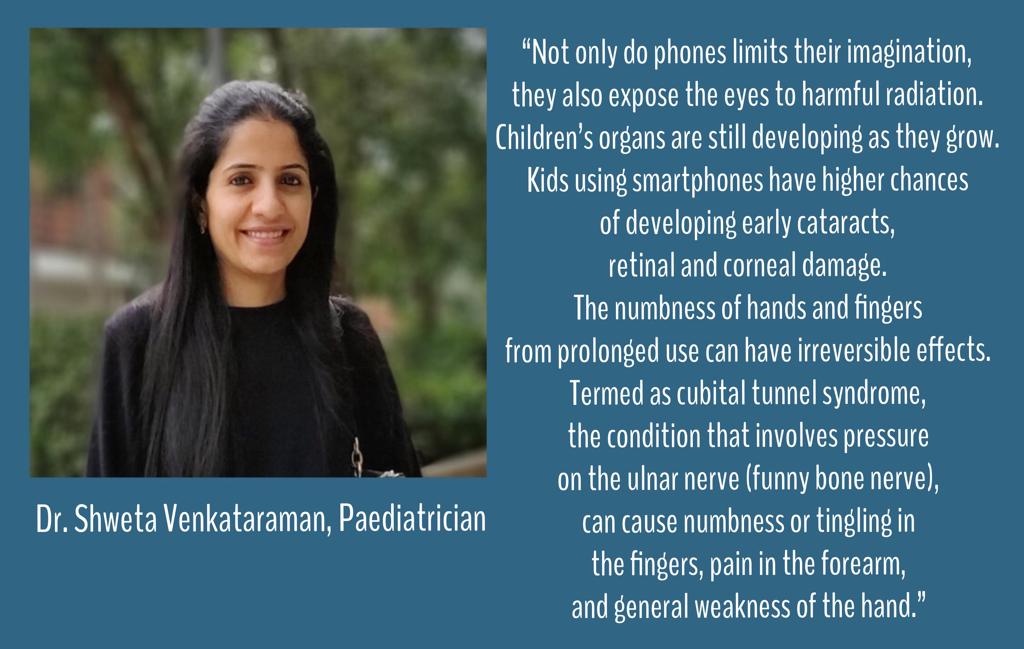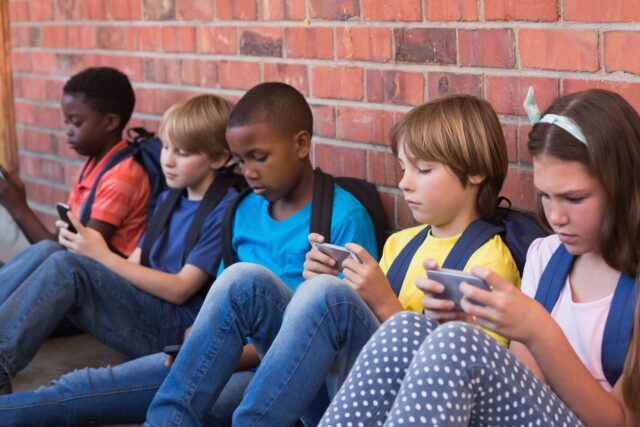If you’re commuting on the MTR, like most Hong Kongers do, there is one thing you’ll see every day – the larger portion of commuters are smartphone zombies with their heads down into their phones. Among these, many are school children. With eyes on their screens and air-pods in the ears they are almost blind and deaf to the world around them. While phones connect us virtually they may be disconnecting us from our real lives.
But let’s admit, our phones have become necessary extensions to our body. It is everything you need to stay connected to your world. The smartphone has replaced the laptop, camera, calendar, clock, books, newspaper, video games, radio, and even the flashlight! Sadly, sometimes it is seen replacing people – when a table full of youngsters are sitting at the café and instead of having a conversation they are head down into their phones. At homes and family gatherings children often greet relatives only when prodded by parents. Engaging more on superficial stimulus, children are lacking the ability to connect with themselves and others around at a deeper level.
As the children of the 90s, 80s and before, we grew up fine without cell phones. School and friends were everything. Curiosity and inventions arose from boredom. But it’s all quite different now. Children today don’t know boredom. Boredom is intolerable. For them, more than communication, the phone is for playtime. And it’s at the fingertips all the time. But with so much packed into one this little gadget, is like a ticking time bomb looming over the young generation.

Understandably, the primary purpose of giving a phone to a child, is to stay connected during the commutes to school and classes. Anandi Rajesh, shares her experience about giving her 11-year-old daughter a phone, “It’s addictive. My reason to give her the phone was that she was taking the public bus to school. Though I ensured there is no overuse, I noticed a change in her because of Whatsapp. She’d message her friends all day. If I talk to her, she replies in monosyllables without looking up! All day her eyes were glued to the screen because she wouldn’t want to miss a single notification.”
Mothers also admit to using it as a ‘quiet time’ tool occasionally because their demanding contemporary lives. The reasons are many, for some it may be an added ‘safety measure’, for others it could be a matter of status, peer pressure or simply the need to give children the best of everything one can afford.
Another young Hong Kong mom, Pushpa Shivakumar, regaling her experiences says, “I gave my son a phone when he was ten and regretted it immediately. He and all his friends are hooked to the phone, playing the same games over and over for accruing points. They rarely chat, unless it is about meeting to play.” However, she has found the perfect tool for controlling this, “I have the app Ourpact installed on my phone and its child version on his phone. I can lock his phone remotely, putting his smartphone into a ‘calls only’ mode. It’s the only way I can control his usage.”
But however we control and monitor the use of their smartphones, children are still exposed to some damage with its use. The big question remains – at what age is it appropriate to start using the smartphone?
The answer isn’t out there yet. But let’s assess the damage and decide for ourselves:
Stunted mental development: Phones operate on electromagnetic waves or radiation, as we call it. The human brain, to carry out it’s neural activity, also uses certain electric impulses. This exchange of electric waves regularly can result in disturbed brain activity. Studies say for children younger than sixteen of years age the skull bones tissues and layers protecting brain are very thin which leaves them vulnerable to the effects of radiation. This in most of the cases results in moodiness leading to cranky irritable behaviour for petty reasons. They remain agitated when away from the screen.
Dysfunctional relationships: Phone gives an escape into a virtual 2-D world with unreal technicolor. Studies prove that immersion in the virtual world delays the emotional and social development of children. Hence kids interacting in the virtual level for prolonged hours turn unempathetic and are poor at communicating in the real world. Young minds become isolated with their screen relationships. In this instant age of everything made available on the fingertips, children grow with a sense of instant gratification and forget the importance of hard work, perseverance and patience.
Posture related problems: Studies say more than half of teenage population in Hong Kong suffers from posture disorders like kyphosis or hunchback where the upper spine is curved due to prolonged use of phone. When people sit with their heads bent and neck protruding for a longer period it strains the spine which in turn may lead to breathing troubles and other musculoskeletal disorders such as rounded back and severe stiff neck. Moreover, the fine skill of putting pen to paper is lost. The thumb is being overworked to the extent that many youngsters suffer from wrist and thumb inflammation.
Exposure to adult content: we hardly realize how we are putting the minds and lives of little children at risk when they are exposed to inappropriate online content. There are a lot of dangers of playing online games of visiting high risk sites where children may encounter kidnappers or pedophiles. Photos shared, addresses of homes, schools or classes shared, specific hours of being home alone, or more sensitive or personal information shared innocently on chat sites may also put them at risk.
![]()
A lot of YouTube videos these days are titled with characters of children’s movies but have adult content when opened. Remember the infamous Elsa-Spiderman videos? Who knew two innocent words can cause damage. Parental controls tools help but are not completely risk-proof. Their music bands and idols also have other related links that show up which discuss drugs and sex. The recent scandal about K-pop is all over the internet!

Talking of such fears, Mathangi Suriyanarayan, a mother of two teenage girls admits to having her own fears about her kids using phones, “I gave my kids phones at ages 14 and 15 respectively to communicate with me while commuting to school which is at quite a distance from home. But a nagging worry of them getting into some sort of online trouble always remained. There is so much we hear about social media bullying. I didn’t ever want my daughters to fall victim to such posts or messages. I kept it in control by handing them the phone only on ‘need basis’. But over time they started browsing the net for longer hours and spending free time on Facebook, checking updates and videos posted by friends. This began to interfere with their concentration in school and on homework. Though I haven’t put parental controls on their phones, I keep them aware about cybercrimes. The worry, of course, remains.”

Comment below about your experiences of handing smartphones to your kids.





